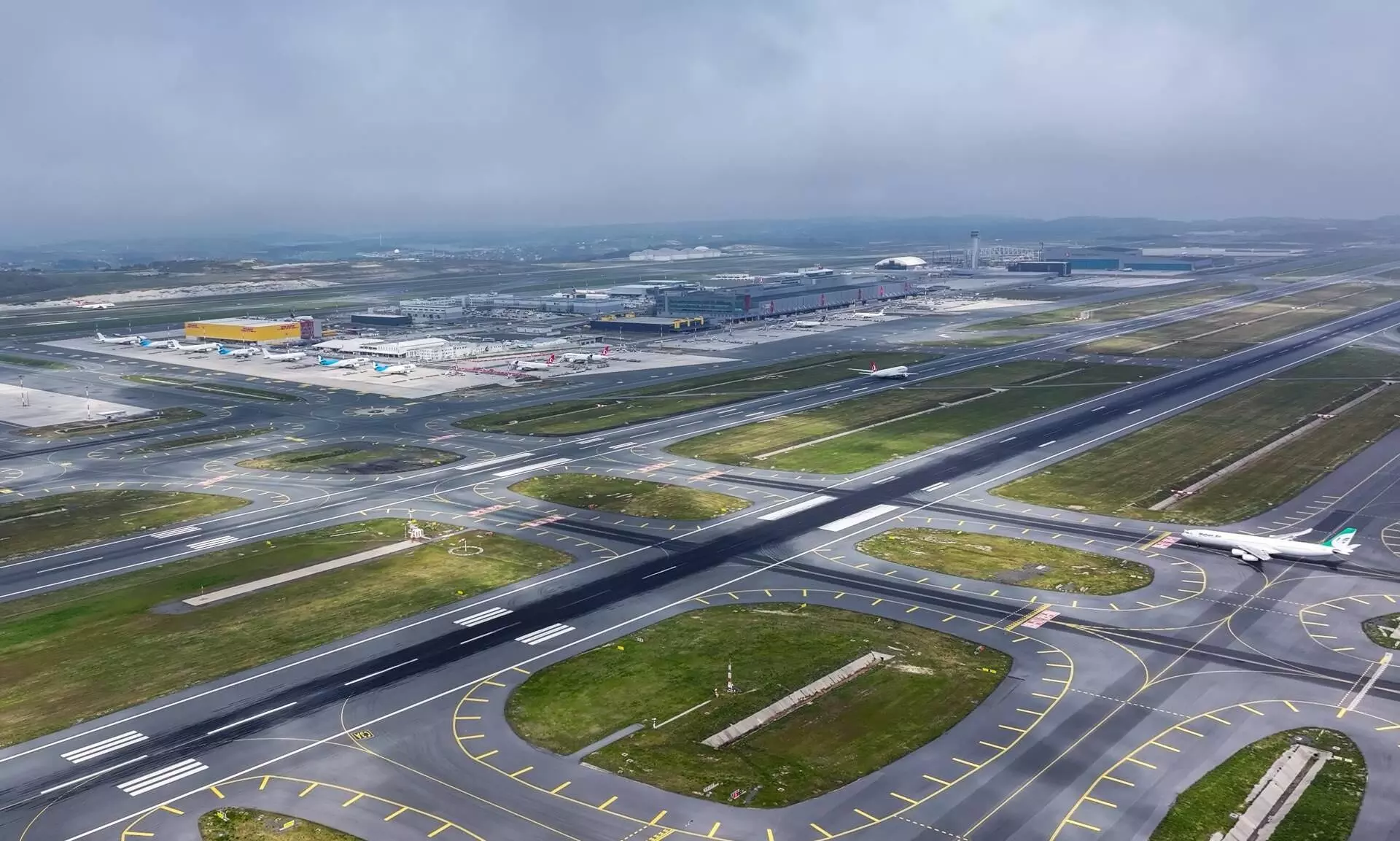
From 47th to 17th: How Istanbul Airport redefined cargo in five year
Istanbul Airport’s meteoric rise in global cargo rankings is reshaping Europe’s logistics map, powered by scale, technology, and strategic foresight.

Source: Istanbul Airport.
In a remarkably short span, Istanbul International Airport (IST) has shifted from an emerging player to a dominant force in global cargo. Infrastructure investments on an unprecedented scale, cutting-edge automation, and a clear focus on e-commerce and integrators have transformed its standing in international air freight. The result is not just higher tonnage, but a repositioning of Europe’s cargo landscape itself.
Istanbul Airport has staged a remarkable climb in the global cargo rankings over the past five years. From 47th place in 2019, it surged to 19th by 2023, powered by a massive increase in volumes, according to Airports Council International (ACI). As per the 2024 data, it continued its momentum, advancing to 17th with nearly 1.98 million tonnes of cargo, a 23.8% year-on-year increase and an overall 289.6% jump since 2019. This surge in volumes has not been accidental, but the outcome of carefully planned infrastructure investments, strategic airline partnerships, and positioning as a logistics and e-commerce hub.
At the heart of this expansion lies the ambitious Cargo City, a 1.4-million-square-meter complex designed to handle up to 4.5 million tonnes annually, and eventually 5.5 million tonnes as all leased spaces become operational.
As Mehmet Büyükkaytan, Chief Operations Officer (COO) of Istanbul Airport, explained, “Spread over 1.4 million square meters, the facility currently features 8 temporary storage and 4 free storage zones. Its scale and efficiency have attracted global players, with Trendyol and FedEx soon completing their dedicated facilities within the complex.”
Supporting this infrastructure is a strong airline and integrator ecosystem. In 2024 alone, 18 scheduled and 42 charter cargo carriers operated at the airport, supplemented by belly capacity across 116 scheduled passenger airlines.
“Currently, for the first 6 months of 2025, the number is 15 scheduled and 26 charter cargo alone,” informs Büyükkaytan.
He also points out that all three global integrators, DHL, FedEx, and UPS, are now present in Istanbul.
“That represents,” he said, “IST’s role not only as a centre of capacity but as a critical hub in the global e-commerce and logistics chain.”
“Enhanced infrastructure, strategic airline partnerships and positioning as a logistics hub have redefined Istanbul Airport’s cargo landscape and contributed to its extraordinary rise in global rankings,” he added.
Turkish Airlines’ own cargo momentum underscores this shift. In July 2025 alone, the airline moved 191,067 tonnes of cargo and mail, an 11.2% jump from a year earlier. For the first seven months of 2025, volumes totaled 1.21 million tonnes, with particularly strong growth on Far East (7.4%) and North America (14.4%) lanes.
Mehmet Büyükkaytan, Istanbul Airport
SmartIST: Technology at the core
No discussion of Istanbul’s rise is complete without SmartIST, Turkish Cargo’s state-of-the-art facility launched in February 2022. Positioned as one of the most technologically advanced cargo centres in the world, it offers an annual handling capacity of 2.2 million tonnes.
Büyükkaytan emphasised its centrality: “The Automated Storage & Retrieval System (ASRS) is used to store and retrieve cargo without the need for forklifts or manual assistance, using high-bay warehouses (17,000 storage bays, 30 stacking cranes, and 15 elevators), minimising handling and maximising time efficiency.”
The facility is built to cater to the most complex cargo demands. The Pallet and Container Handling System (PCHS), currently in active use, automatically measures and assigns the weight and height of load units (ULDs)
“Inside the facility, there are cold storage units suitable for various temperature ranges, dedicated storage areas for pharmaceuticals, special cargo and designated zones for hazardous and radioactive materials, all designed to support specialised cargo handling services,” Büyükkaytan noted.
For pharma, perishables, and high-value cargo, SmartIST has become a game-changer, raising service levels while enabling rapid turnarounds that few airports can match.
Europe’s new cargo leader
Büyükkaytan noted that the cargo ranking of Istanbul Airport is no coincidence and attributed its achievements to a mix of cost advantages, operational design, and infrastructure.
“Lower labour costs in Türkiye, especially for ground handling and personnel, offer a significant advantage over European hubs. Fuel and airport tariffs at Istanbul Airport remain highly competitive, supporting more cost-efficient operations for airlines and logistics companies,” he said.
Equally important is the efficiency of SmartIST compared with older European hubs. “SmartIST centralises all cargo operations under one roof,” Büyükkaytan explained. With its SmartDock system, advanced ULD controls, and automated warehousing, the facility represents next-generation cargo handling at scale.
Moreover, the airport’s very layout is an operational advantage. “Istanbul Airport's design allows seamless integration of aircraft parking positions with temporary storage and customs zones. This proximity drastically reduces cargo ground time and enhances the efficiency of ramp and handling operations—something older, urban-constrained airports cannot easily replicate,” he added.
Finally, the continued momentum of Turkish Airlines, with one of the world’s largest cargo networks, remains a key driver. “Its ongoing strategic focus and strong operational presence at Istanbul Airport continue to feed cargo volumes at high momentum,” Büyükkaytan pointed out.
Cargo future
The story of Istanbul Airport’s rise is one of foresight and execution. Purpose-built infrastructure like Cargo City, advanced logistics facilities such as SmartIST, and competitive operating conditions have combined to propel it past established European hubs.
As Büyükkaytan summed it up, “Together, these advantages make Istanbul not just a cost-effective alternative, but a strategically superior hub for global cargo logistics, e-commerce, and air freight operations.”
As the airport continues to blend cost advantages with world-class facilities and network strength, its trajectory signals a lasting transformation in how global cargo flows are routed, handled, and expanded from Europe’s crossroads.
The article was originally published in the Sept 2025 issue of The STAT Trade Times.

